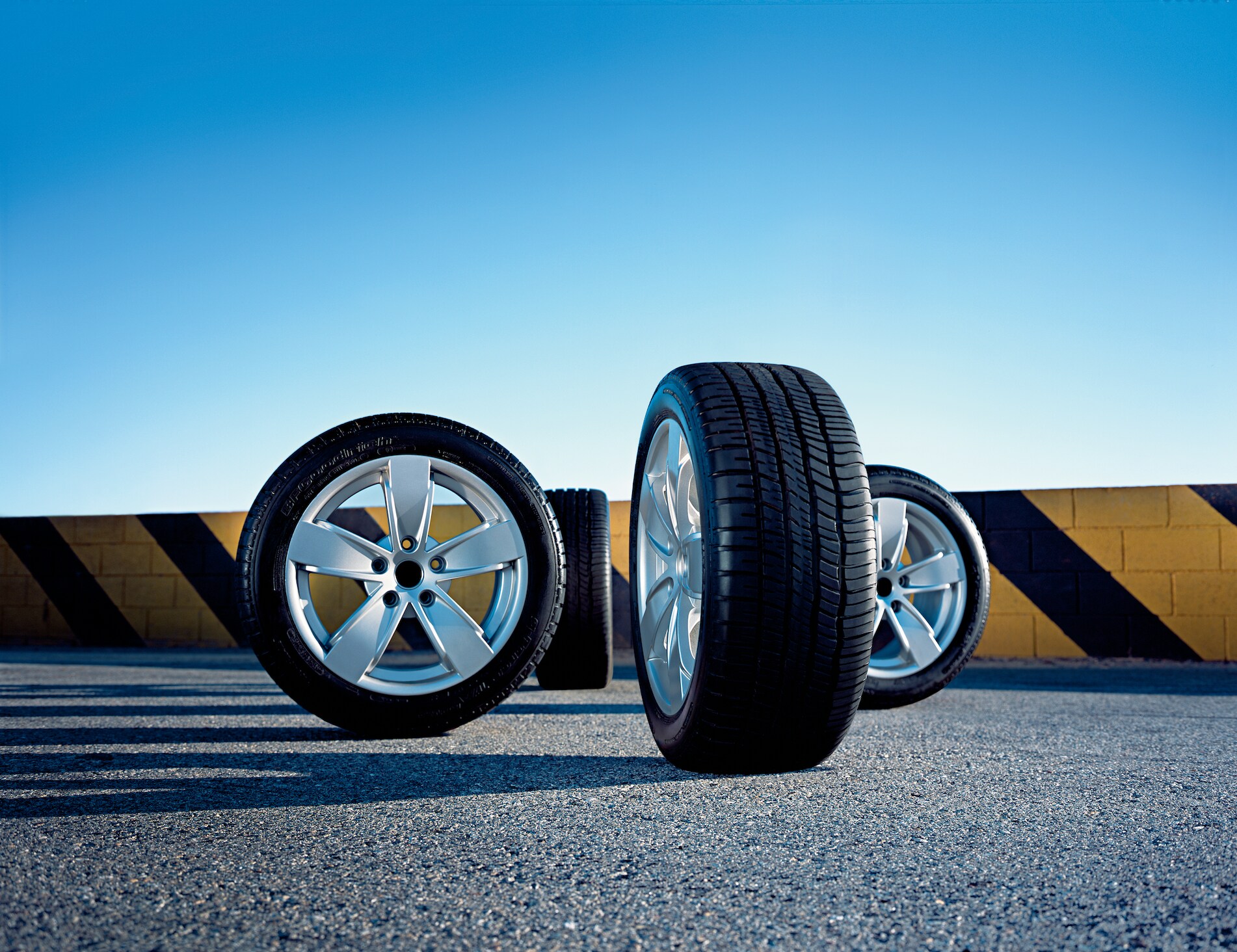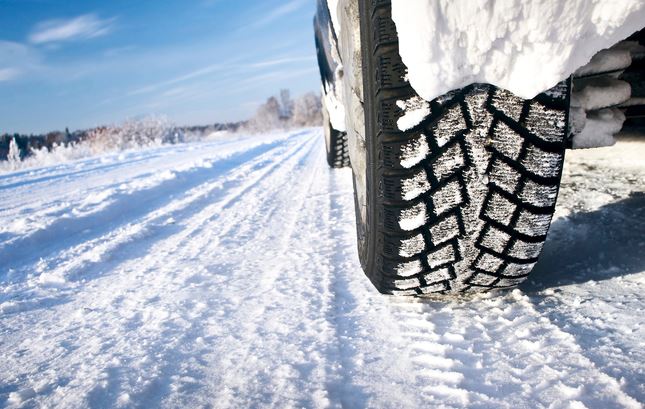When winter winds howl and temperatures drop below 40 degrees, driving can get downright hazardous. Deciding between running All-Season or Winter tires, sometimes called Snow tires, really comes down to where you live, what the weather is like during winter months, and how you drive. While All-Season tires are made for year-round travel in milder climates, Winter tires are designed specifically for harsher winter conditions featuring special rubber compounds made for colder climates, tread patterns that are made to handle ice and snow and give you better grip, handling and traction. Are All-Season or Winter Tires best for you? Let's find out!
Benefits of All-Season vs Winter Tires

All-Season or Winter Tires, Which is Best?
When to Choose Winter Tires
Choosing which tires to run on your car, SUV, or truck when the season gets frosty, really comes down to how harsh the winters are where you live. For many in the southern states, All-Season tires work well year-round. However, if you face harsh winters where the temperatures get below freezing and there is often heavy snow that sticks around as well as icy road conditions including "black ice", Winter tires definitely offer better traction because they are made for optimal performance and fuel efficiency when temperatures are below 40 degrees. Designed using special rubber compounds that stay flexible in extremely low temperatures, Winter tires include deep and jagged tread depth through patterns made to maintain maximum traction and move snow and slush away from the tires.
If you find yourself driving through ice and heavy snow frequently during the winter, then Winter or Snow tires are best. They can make the difference between controlling your vehicle with confidence, or spinning out of control and finding yourself stuck in a snow drift.
Performance Ratings
Most Winter tires come without studs yet are still designed for excellent grip on snow. Studded Snow tires have small metal spikes or cleats across the tire tread. They protrude from the tread to break through packed snow and ice on the roadway, for the ultimate in winter driving traction and contact with the road.
You will notice that Winter tires are stamped with a special symbol called the Three Peak Mountain Snowflake (3PMSF) on the sidewall. This proclaims that the tire has been tested and proven to provide exceptional traction in snow and ice conditions. Your Winter tires should match the vehicle specifications found in your Owner's Manual including size, speed rating, load index, and tire pressure. If you are unsure on which tires will be best for Winter driving, consult the factory-trained professionals at your Lithia Motors Service Center. We can show you all the options and explain the differences and tire manufacturer rating system in person.


Rubber Compounds and Treads for Winter
The special rubber compounds used in Winter tires are made to work together with very specific aggressive tread patterns to give you optimum control on very cold, ice-covered roads. They are made to handle rain, sleet, and snow, digging deep to grip the road and special "sipes" which are small channels etched into the tread, work to move water, mud, and slush away from the tire.
Please note that for all these reasons, Winter tires are not meant for use year-round. Those who live in areas where severe winter weather is common usually have a set of Winter tires for the months between October and March and another set of All-Season tires for the rest of the year.
The Difference between All-Season and All-Weather
While it is possible to utilize All-Season and All-Weather tires year-round and use them every day, there are specific differences between the two types of tires. All-Season tires are great for mild climates in areas that might get below freezing weather and get the occasional snowstorm where snow sticks around for a day or two. They offer good driving performance in wet or dry conditions during every season, hence the name.
All-Season
All-Season tires are created to give you a smooth, reliable ride under most conditions. They are great on dry pavement and handle well in rain. They have a rubber compound designed to stay flexible and grip the road in hot weather and do reasonably well in cold weather, handling light snow. However, they are not designed to handle extreme cold winter driving in temperatures below zero where roads are covered in ice and snow for months on end. The rubber compound in All-Season tires becomes harder when temperatures drop below freezing, losing traction and making the vehicle more difficult to control.
For those kinds of snow and cold conditions, All-Weather or Winter tires are more practical. Both have earned the Three Peak Mountain Snowflake mark that tells you they have been produced specifically for winter driving. All-Weather tires work well year-round. They work well in the summer and give you better grip in winter months than standard All-Season tires. On the negative side, All-Weather tires don't last as long as All-Season tires and are often louder, making more noticeable road noise inside the car. Like All-Season tires, All-Weather tires can stay on your car year-round.
Winter or Snow Tires
When talking about Winter tires, also called Snow tires, these are a separate set of tires for winter weather only. The rubber compounds and tread designs specifically created for Winter tires work in concert to keep you in control of your vehicle, even in severe snow conditions. The rubber stays softer and more flexible in cold weather and the tread pattern aids traction for better grip while specific winter sipes channel water, slush and ice away from the tire. They are designed to maintain traction in the harshest winter driving conditions.
When comparing Winter tires to All-Weather tires, remember that All-weather tires can stay on your car year-round while Winter tires will have to be changed out every spring and fall. All-Season tires might work well for you year-round as long as you live in a more temperate climate.
Also, remember that various states have different laws and requirements when it comes to the use of studded tires. You may wish to purchase a set of Snow Chains for use on roads and highways when snow conditions amp up.
Let Lithia Help
You may not know that Lithia Motors auto dealership and service centers sell tires by many major brands. When you buy a set of tires from Lithia Motors, we will rotate them free of charge for the life of the tires. No matter if you are buying Summer, All-Season, All-Weather, or Winter tires, we have the right tires for you. Contact your neighborhood Lithia Motors Service Center today.


